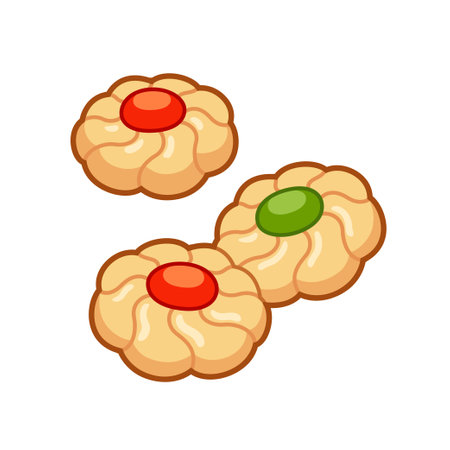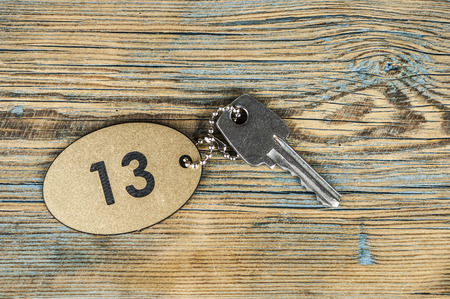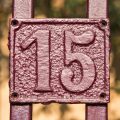Introduction to Life Path Numbers
For many in the UK, numerology might seem a bit mystical or perhaps something reserved for late-night telly or the odd mention in the back pages of a lifestyle magazine. However, numerology has roots that stretch back centuries and across cultures, offering intriguing insights into personality and life direction. At the heart of this tradition is the concept of the Life Path Number – a single digit derived from your date of birth, believed to reveal key aspects of your character and destiny. Just as Britons might read their horoscopes over a cup of tea or discuss star signs at the pub, so too have people across these isles become increasingly curious about what numbers might say about them. The Life Path Number is particularly significant because it’s considered a kind of ‘numerological DNA’, thought to encapsulate one’s core strengths, challenges, and opportunities. While approaches may vary from London to Liverpool, or Edinburgh to Cardiff, the essential idea remains: by understanding your Life Path Number, you may gain new perspective on your choices, relationships, and long-term goals. In this guide, we’ll explore how to calculate your own number using straightforward methods familiar to British readers, while also considering how numerology can fit into everyday UK life.
2. Gathering Your Birth Date Information
Before you can calculate your Life Path Number, you need to collect your date of birth in the correct format. For British readers, it’s essential to use the standard UK date format, which is Day/Month/Year (DD/MM/YYYY). This differs from the American style, which places the month first. Using the correct order ensures accuracy in every step that follows.
Why Is the British Format Important?
In the UK, official documents, forms, and most records adhere to the DD/MM/YYYY structure. Writing your birth date this way avoids confusion and errors during calculations. For example, 04/07/1992 means 4th July 1992 (not April 7th).
How to Write Your Date of Birth Properly
| Component | Description | Example |
|---|---|---|
| Day (DD) | The two-digit day you were born | 09 |
| Month (MM) | The two-digit month you were born | 11 |
| Year (YYYY) | The full four-digit year you were born | 1985 |
| Date Format Example | Your birthday written in British format | 09/11/1985 |
Instructions:
- Always write single-digit days and months with a leading zero (e.g., 03 for 3rd).
- Avoid using slashes or dashes inconsistently—stick to slashes: DD/MM/YYYY.
- Double-check your date for accuracy before moving on to calculations.
This careful attention to detail ensures that you are ready for the next steps in determining your Life Path Number, following traditional British conventions for clarity and precision.

3. Step-by-Step Calculation Method
Calculating your Life Path Number is a straightforward process, but to ensure clarity for our British readers, let’s walk through the method in detail using the UK date format: day/month/year. This approach will help you avoid common mistakes that can arise from differing international conventions.
Step 1: Write Down Your Full Date of Birth
Begin by writing your date of birth in the standard British style: DD/MM/YYYY. For example, if you were born on 17th April 1991, you would write it as 17/04/1991.
Step 2: Reduce Each Component to a Single Digit
Next, reduce the day, month, and year separately by adding their individual digits together until each component is a single digit:
Day
If your day is 17, add 1 + 7 = 8.
Month
If your month is April (the fourth month), this remains 4.
Year
For 1991: 1 + 9 + 9 + 1 = 20; then add again: 2 + 0 = 2.
Summary Example:
Day: 17 → 8
Month: 04 → 4
Year: 1991 → 2
Step 3: Add the Reduced Numbers Together
Add your reduced day, month, and year numbers together: 8 (day) + 4 (month) + 2 (year) = 14.
Step 4: Reduce to a Final Single Digit
If your result is not already a single digit, break it down further by adding the digits together. For instance, with our example of 14: 1 + 4 = 5. Thus, your Life Path Number is 5.
A Note on Master Numbers
If at any stage you reach the numbers 11 or 22 during reduction, these are considered ‘Master Numbers’ in numerology and are usually not reduced further. For example, if your total comes to exactly 11 or exactly 22 before the final reduction step, retain that number as your Life Path Number.
This step-by-step British guide ensures you follow local conventions and avoid confusion when calculating your Life Path Number. Next up, we’ll explore what each Life Path Number means for you.
4. Reducing Numbers the British Way
Once you have added together all the digits from your date of birth, you will most likely end up with a double-digit number. In numerology, the next step is to reduce this number to a single digit (unless you land on 11, 22, or 33, which are considered “master numbers” and are handled differently—more on those later). This process is often referred to as “reducing” or “digit summing.” For British readers new to numerology, here’s a straightforward approach tailored to our style.
How to Reduce Double-Digit Numbers
The principle is simple: add the two digits of your number together. If the result is still a double-digit, repeat the process until you have a single digit. Let’s look at some familiar examples using UK-specific dates.
Example Table: Reducing Common UK Birth Dates
| Date of Birth | Initial Sum | Reduction Steps | Life Path Number |
|---|---|---|---|
| 8 July 1990 | 8 + 7 + 1 + 9 + 9 + 0 = 34 | 3 + 4 = 7 | 7 |
| 23 March 1985 | 2 + 3 + 3 + 1 + 9 + 8 + 5 = 31 | 3 + 1 = 4 | 4 |
| 15 December 1972 | 1 + 5 + 1 + 2 + 1 + 9 + 7 + 2 = 28 | 2 + 8 = 10 → 1 + 0 = 1 | 1 |
A Note on Master Numbers (11, 22, and 33)
If your reduction leads you to an 11, 22, or occasionally a 33, pause there. These master numbers are considered unique in numerology and are not reduced further at this stage. For most cases, however, keep reducing until you reach a single digit between 1 and 9. This systematic approach ensures that anyone in Britain can confidently calculate their Life Path Number without confusion.
5. Understanding Special Cases and Master Numbers
In British numerology, as in many other traditions, certain numbers hold particular significance and are referred to as Master Numbers. These are typically 11, 22, and 33. Unlike other double-digit numbers that are reduced to a single digit during the Life Path calculation process, Master Numbers remain intact due to their supposed heightened spiritual or creative vibration.
When you calculate your Life Path Number and arrive at one of these special numbers before any final reduction (for example, if your sum is 11, 22, or 33), you should not reduce them further to 2, 4, or 6 respectively. Instead, you keep them as they are and interpret their meaning accordingly. For example, a person born on the 29th of July 1980 would add up their birth date components and potentially arrive at a sum of 11. In this case, according to British numerological practices, their Life Path would be considered an 11 rather than a reduced 2.
Within UK-based numerology circles, Master Numbers are thought to represent higher potential for growth, insight, and achievement but may also bring increased challenges. Some British practitioners suggest that individuals with these numbers often feel a greater sense of responsibility or purpose. However, it is also recognised in the UK tradition that not everyone resonates with the Master Number energy throughout their life—it can depend on personal development and awareness. If you have calculated a Master Number as your Life Path Number, you might wish to consult British numerological literature or a local numerologist for more in-depth guidance on what this could mean for your personal journey.
6. Interpreting Your Life Path Number in a UK Context
Once you’ve calculated your life path number, it’s time to reflect on what it could mean for you here in the UK. Each number carries its own set of characteristics, and interpreting these through a British lens can give you a more personal and relatable understanding. Below are brief insights into each life path number with references to British culture, values, and everyday experiences.
Life Path 1: The Independent Leader
If you’re a 1, think of yourself as the sort who takes the initiative—perhaps like those trailblazers who started the Suffragette movement or modern entrepreneurs leading Britain’s tech scene. Independence and ambition are at your core, but remember that good leadership also means listening to others (a value much appreciated in the UK workplace).
Life Path 2: The Diplomatic Peacemaker
Twos thrive on harmony and cooperation—a bit like navigating the great British tradition of queueing or mediating a family debate over the last biscuit. Use your natural tact and sensitivity to foster unity, whether in a local community project or within your circle of friends.
Life Path 3: The Creative Communicator
Threes shine when expressing themselves—think of the vibrancy seen at Glastonbury Festival or in London’s West End. Your creativity is an asset, so don’t shy away from sharing your ideas, whether it’s through witty banter at the pub or contributing to the arts.
Life Path 4: The Practical Organiser
Fours are reliable and detail-oriented—traits celebrated in British institutions from the NHS to Network Rail. You’re likely someone who keeps things running smoothly behind the scenes. Your steady approach is valued in workplaces and communities that prize consistency and order.
Life Path 5: The Adventurous Explorer
If you’re a 5, change excites you—imagine taking spontaneous trips across the UK or embracing new trends in fashion and food. Adventure doesn’t always mean travelling far; sometimes it’s about being open-minded and adaptable in daily British life, from trying a new sport to exploring diverse cultures within your city.
Life Path 6: The Caring Supporter
Sixes are nurturing and responsible, often drawn to roles where they can support others—think of teachers, carers, or those involved in charity work. Your warmth makes you a valued friend or family member, echoing the strong sense of community found in British villages and towns.
Life Path 7: The Thoughtful Analyst
Sevens are introspective and analytical—perhaps enjoying quiet moments with a cup of tea while reading up on history or science. You thrive when given space to think deeply and value learning for its own sake, fitting well into Britain’s tradition of academic curiosity.
Life Path 8: The Ambitious Achiever
Eights have drive and determination reminiscent of Britain’s business leaders or athletes striving for Olympic gold. You’re motivated by goals and material success but remember that integrity is highly regarded in British society—how you achieve is just as important as what you achieve.
Life Path 9: The Compassionate Humanitarian
Nines feel fulfilled by helping others—think of those supporting charities like Comic Relief or volunteering at local food banks. Altruism resonates strongly with many British values; your big heart can make a real difference both locally and globally.
Applying These Insights Day-to-Day
Your life path number offers guidance rather than strict rules. Consider how its meaning aligns with your experiences in the UK—at work, among friends, or within your community. Use these insights as prompts for self-reflection or even as conversation starters next time you’re enjoying a cuppa with mates.
7. Conclusion and Further Resources
Understanding your Life Path Number is a fascinating introduction to the world of numerology, and it offers an accessible way for British readers to reflect on their personal journey. If this guide has piqued your curiosity, there are plenty of ways to continue exploring numerology right here in the UK.
Suggested Reading for British Numerology Enthusiasts
For those keen to delve deeper, several books stand out. The Complete Book of Numerology by David Phillips offers a comprehensive foundation. For a more local perspective, Teresa Moorey’s Nostradamus: The Illustrated Prophecies includes numerological insights relevant to British history and culture. Check with your local Waterstones or independent bookshops for availability.
Trusted UK-Based Websites
If you prefer learning online, The Numerologist UK provides guides tailored to British readers, while the Spiritual Arts Foundation UK hosts events and articles about numerology and other esoteric sciences.
Join Local Numerology Communities
Connecting with like-minded individuals can be invaluable. Look out for workshops and talks through organisations such as The College of Psychic Studies in London or explore meetup groups focused on numerology across cities like Manchester, Edinburgh, and Bristol. These communities offer opportunities for discussion, learning, and shared discovery within a distinctly British context.
Whether you’re simply curious or eager to master the art of numerology, the resources above are excellent starting points for further exploration. Best of luck on your numerological journey!


